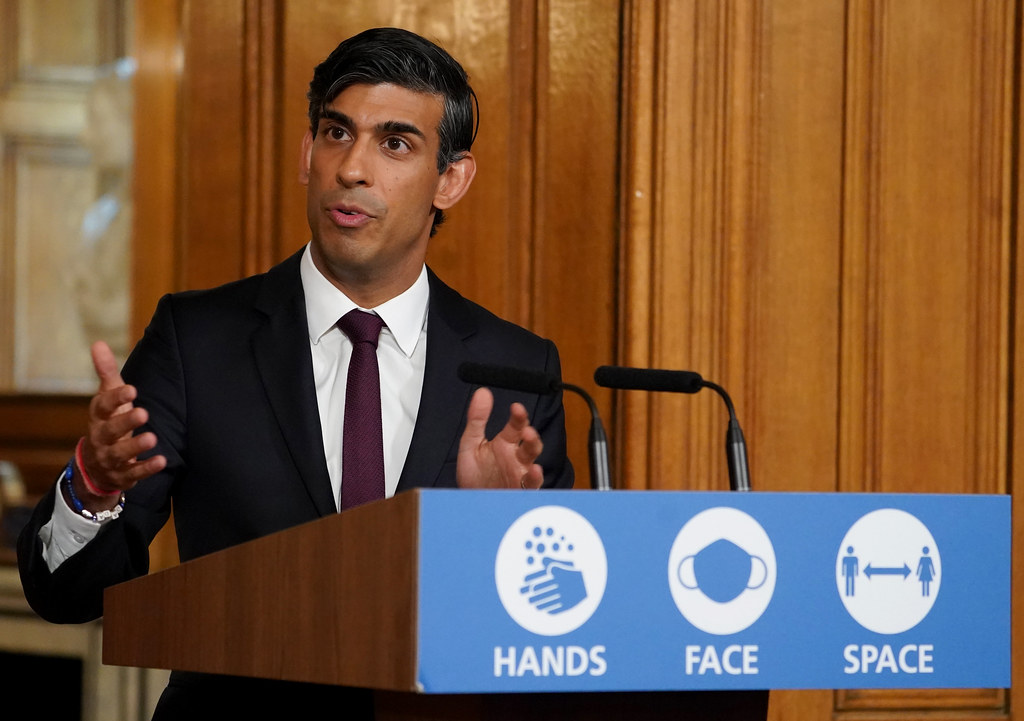The 2021 spring budget presented to Parliament last Wednesday provided a great opportunity to closer examine the government’s plan to tackle Covid-19’s chronic attack on the UK economy. Whilst it seems the exchequer has opted for a spending spree to combat the current downturn there is cause to wonder will it be enough to both support those struggling and appease the government’s political enemies.
With growing speculation the weeks prior that Sunak’s plan might mark a return to more traditional Conservative spending policies, many worried that a turning to tackle the deficit too soon could be fatal for the economy’s recovery. The chancellor faced a tightrope walk between stimulating the economy and recovering public finances.
In short, the budget delivered marked the executive’s desire to continue to spend their way out of lockdown, borrowing a peacetime record of £394bn to fund this economic stimulus. Sunak had previously justified this spending spree as necessary in this time of ‘economic emergency’. The UK saw its economy shrink by 9.9% GDP percentage points in 2020, the biggest slump since the cold snap in 1709, and the pandemic has seen a further 700,000 people out of a job. Sunak’s response to the crisis has very much echoed that of Biden’s across the Atlantic, who’s $1.9tn cash injection is fast at the forefront of the US’ economic response.
Politically, however, the budget has forced Johnson’s government into a tricky corner. Whilst both parties have expressed their opposition to tax increases, (something Sunak has somewhat honoured by leaving national insurance, income tax and VAT rates untouched), within both parties there remains dissatisfaction. On the Conservative side the set increase in corporation tax from 19% to 25% has unsettled backbenchers. The delay in its implementation scheduled for 2023 and Sunak’s quick boast that it remained the lowest rate amongst G7 countries will do little to soften the blow.
Shooting for Labour, leader Keir Starmer lambasted the budget for merely having “papered over the cracks” in the economy rather than “rebuilding the foundations”. Starmer argued the universal credit boost and other provisions such as the extension of furlough and minimum wage increase were not enough to aid families struggling in the face of council tax increases set to hit later this year. Labour’s strongest case against the government, however, is the lack of support directed towards NHS and social care. The 1% pay rise announced timidly the day following the budget starkly contrasted with the adoration the Conservatives had been so keen to lavish onto the NHS. The government’s insistence that this increase is in line with low levels of inflation will do little to calm health unions now poised to strike.
One of the important mountains the budget has sought to climb is preserving the new northern Conservative support base the party won over in the 2019 election. The ‘Towns Fund’ announced in the budget, set to provide £1bn for 45 areas of England, is set to heavily benefit towns in the North west, Yorkshire and the Midlands. For Starmer the fund is political, as he muses 40 of these 45 are held by a Conservative MP. The budget furthermore has homed UK’s the first ever ‘Infrastructure Bank’ in Leeds, one of the country’s growing financial hubs in the hopes of a further injection to the region.
With regards to the West Lothian question and the growing momentum behind the Scottish independence movement it will be interesting to see how the chancellor’s provisions for devolved governments will be received. £1.2bn has been allocated to the administration in Holyrood – £700m more that Scottish finance minister Katie Forbes had accounted for in the SNP’s draft budget. However, it remains difficult to see how this will change Scotland’s view of Westminster when they are subjected to the same pitfalls in the budget as the rest of the UK – the lack of welfare provisions being a key one.
For now, Sunak has escaped the traditional mould of ‘Conservative chancellor’ in the hopes of boosting the economy by the time the UK arrives at the ballot box in 2024. Whilst businesses are pulled back onto their feet, concern remains to see if the budget can adequately provide for those most in need. Critically however, with one eye on the rising deficit, Sunak has failed to reward those at heart of the country’s response to the pandemic. The NHS.
Emma Dodd
Image source: Flickr

